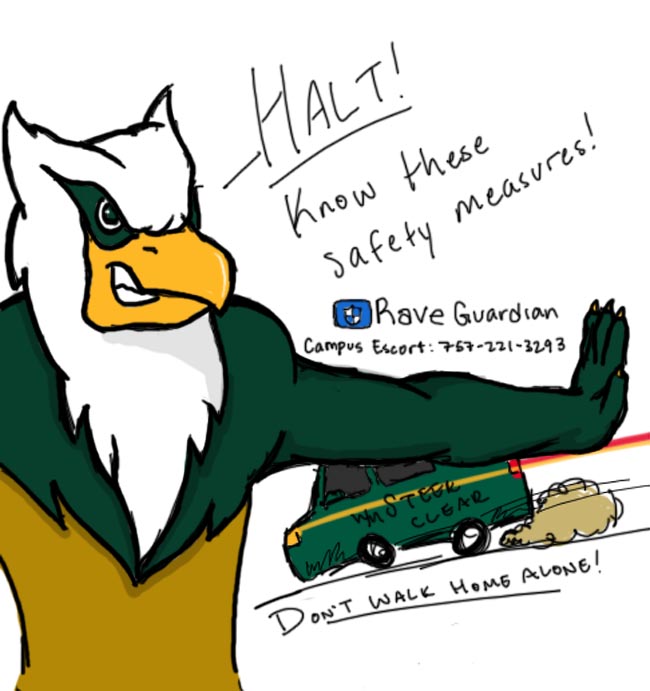U.Va sophomore Hannah Graham went missing over three weeks ago. While the search continues, each day brings greater dismay over the likelihood of her safe return. With that concern comes the shocking reality of the dangers we often ignore in our daily lives. None of us expects to be “that person.” As a college freshman taking on a significant level of independence for the first time, Hannah’s story has been especially unsettling — even more so after considering how ill-prepared I feel to face a similar situation.
As a supplement to the material presented during orientation, freshmen are required to take part in four First Year Initiative sessions. Of these four, the session titled “Healthful Relationships” focuses the most on sexual assault and general campus safety.
This would have been an ideal time to provide information about resources and strategies to help students stay safe. However, these topics felt rushed in order to make room for a lengthy group discussion about the definition of consent. I don’t deny the importance of such discussion, but in light of recent events, I wonder if it should have taken precedent over information that is directly applicable in emergencies.
Hannah Graham appears to have been the target of a calculated individual who took advantage of her confusion and vulnerability, a person who had no regard for her consent or well-being. That’s what makes her story so terrifying. And that’s what, unfortunately, necessitates a more in-depth discussion of campus safety — a topic that deserves as much emphasis as the meaning of “when no means no.”
The First Year Initiative sessions are an invaluable opportunity to go over with freshmen well-known strategies, such as not leaving your drink unattended, going out with a group of people, and not walking home alone. Additional approaches to safety could also be discussed — like keeping someone updated about where you are and when you leave.
Even more importantly, they offer the chance to explain in detail resources available to students such as Steer Clear, Campus Escort, apps such as Rave Guardian and the Emergency Call Boxes. These are instruments of safety on campus, and it is critical that every student have the ability to confidently use them.
This past week, the office of Student Affairs and the Student Assembly sent emails outlining some of these resources. Given the tragic situation at U.Va, it was important information to get out to the College of William and Mary community. Hopefully, students will take the time to open and read the emails.
But more needs to be done in the future. Discussing campus safety should be a priority for all incoming students, not an afterthought following a horrific event — or a footnote in a discussion of “Healthful Relationships.”
Email Isabel Larroca at imlarroca@email.wm.edu.


I appreciate this critique of the orientation program and think that resources are definitely necessary. In each Healthy Relationship session, students were required to take out their phones and put in the number for Campus Police and told about other resources on campus (we did not have the Rave app at the time).
We focus on these things for two main reasons:
1) We know that in the majority of campus sexual assault, the victim knows the assaulter.
2) Most of these assault happen when alcohol or drugs are involved
Since we know these two thing, we find it important to focus on consent and bystander intervention.
Hannah’s case, while devastating, is rare and I agree with you 100% that students should be equipped with resources; however, when you think of the extensive sexual violence that happens on this campus and what conditions it happens under, you can obviously see why we focus more on consent and sexual assault.